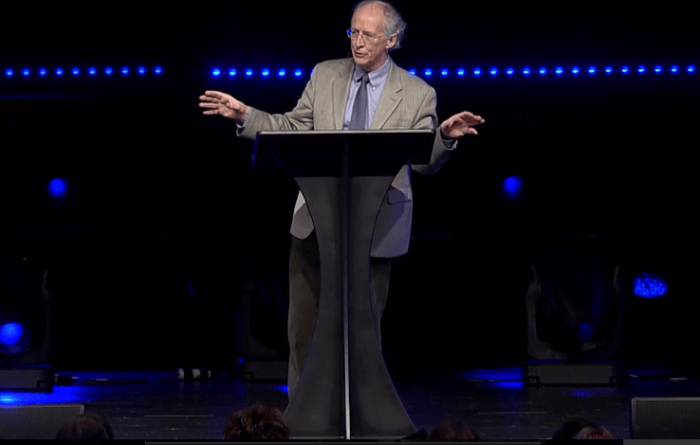John Piper Misunderstands Depression, Pastor Says; Church Must Destigmatize Mental Illness

If depression does not relent, a pastor will cease to be a benefit his congregation, John Piper says. But another pastor who has lived through serious depression says what is needed is to destigmatize mental illness.
In an AskPastorJohn podcast on Desiring God Wednesday, the Reformed theologian and former pastor of Bethlehem Baptist Church in St. Paul, Minnesota, explained that Scripture suggests that a depressed pastor or elder will not benefit the people of God, stopping short of saying it disqualifies a person from ministry.
He explained that "Hebrews 13:17 says, 'Obey your leaders and submit to them, for they are keeping watch over your souls, as those who will have to give an account. Let them do this with joy' — so let your leaders, your pastor and elders, lead with joy — 'and not with groaning, for that would be of no advantage to you.'"
"In other words," Piper continued, "a chronically joyless pastor is of no advantage, no benefit, to his people, which means there comes a point when, for the sake of the people, he should step down or step back."
He went on to explain that the Apostle Paul's apostolic mission was to seek the joy of other people and that it is therefore the calling of every pastor and elder to do likewise.
"If their own inability to rejoice in the Lord hinders that, there may come a time when they are not able to fulfill that calling," he said.
Piper maintained that an important distinction exists between a pastor in a dry season crying out to God for mercy and one who is "giving into joylessness out of anger and bitterness."
Loss of joy may happen as a result of hidden sin, he added, and no pastor should tolerate that within his own soul. But experiencing depression in the midst of pastoring might be a blessing of sorts, if the pastor is able to feel affection for the people he pastors.
"If so, your season of darkness may be a balm to them because they will know that your affection is rooted in your confidence in the Gospel."
Yet it also matters how long the season of darkness, depression has gone on, Piper said, and the best course might be to request a sabbatical; a resignation ought to be the "last resort."

Neil Schori, who pastors at Edge Church outside of Chicago, Illinois, is deeply familiar with the tumult of depression while in ministry. Yet he believes Piper lacks understanding.
In March 2013, Schori was blindsided by two of the elders in his church who did not like how he worked with another pastor on staff, and they told him he was wrong, he recounted in an interview Friday with The Christian Post.
Although he disagreed with them, he ultimately agreed to do what they had asked.
"None of the other three elders were brought into the barrage of meetings that they called me into, and I was repeatedly verbally attacked by the two. I had daily panic attacks for the next six months," Schori told CP.
"I was broken and afraid. I was broken by the loss of trust I had in my elders. I was afraid of retribution — job loss — if I went to the others to tell them what was happening. I felt as though I had no recourse."
Compounding the stress and strain, he was preaching 48 weeks per year and this did not change during that pain-filled, depressing season. Almost no one knew and he put on as brave of a face given the circumstances, but "I was dying inside" he said. His wife felt the turmoil too.
"As per usual, Piper weaved scripture all throughout his answer, but in the end, my prevailing thought was: he just doesn't 'get' depression."
Depression is not "sadness," though that is a symptom, Schori stressed. Nor is it "joylessness," even though that may accompany depression, he said.
"Depression isn't a 'feeling' at all. Depression is complex. It can be situational like mine was."
"But it can also be chemical. And brain chemistry is serious and real and life or death hangs in the balance. It concerns me that no pastors are judged for having heart attacks that are often rooted in gluttony, but that we're even having a discussion about being disqualified from ministry for having mental health issues."
All too frequently, Schori says, he will see news articles about pastors committing suicide.
"What we need is to take away the shame that comes from the stigma of mental illness," he asserted.
"I couldn't pray my way out of its grasp and that didn't make me faithless. It made me human and God still loved me."
He urges depressed pastors to reach out for help, emphasizing that it does not disqualify them from ministry.
"It actually makes you a far better pastor."




























